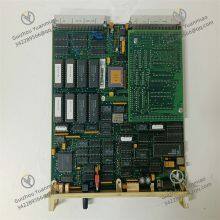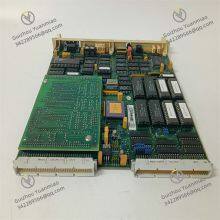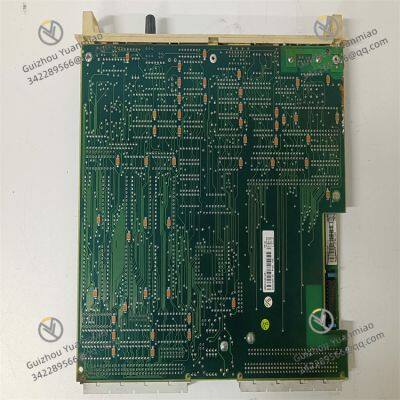Material
Other, Global universal model
Condition
Other, Global universal model
Task
Other, Global universal model
Mathematical Model
Other, Global universal model
Signal
Other, Global universal model
Customized
Non-Customized
Structure
Other, Global universal model
Dimensions
2x24.8x24.4 cm
Input Voltage
24V DC
Weight
0.58 kg
ABB PFSK130 3BSE002616R1Overview
The ABB PFSK130 3BSE002616R1 is a channel control unit mainboard specially designed for the industrial automation field, occupying a core position in various industrial automation systems. It shoulders the important task of managing and regulating data transmission and interaction between channels. With its excellent performance, it strongly promotes the process of industrial automation. As a member of ABB's product portfolio, it deeply meets the needs of industrial scenarios, providing key support for achieving efficient and stable automated production.

Functional Features1. Efficient Data Processing
Equipped with advanced processors and communication technologies, it can complete data transmission and processing tasks at high speed and precision. It supports multiple common communication protocols such as Ethernet, RS485, and PROFIBUS, enabling seamless integration with various industrial automation devices and systems. This ensures real-time and accurate data flow, meeting the strict requirements of industrial production for data timeliness.
2. Powerful Channel Management
Featuring multiple channel control interfaces, it can effectively manage data transmission across multiple channels simultaneously. Through intelligent channel scheduling algorithms, it allocates channel resources reasonably according to the diverse needs of actual application scenarios, significantly improving data transmission efficiency and ensuring smooth system operation.
3. Flexible Configuration and Expansion
It provides users with rich configuration options and expansion interfaces, allowing customized settings for specific application scenarios. Additionally, it supports hot-swappable module functionality, enabling convenient maintenance and upgrades during system operation—reducing downtime and enhancing production efficiency.
4. High Reliability and Stability
Manufactured with high-quality hardware components and strict production processes, it possesses strong anti-interference capabilities and fault-tolerance mechanisms. It can operate stably even in harsh industrial environments (e.g., strong electromagnetic interference, high humidity, high dust) and effectively handle various unexpected situations and electrical interferences, ensuring continuous and reliable system operation.

Technical Parameters1. Power Supply Parameters
2. Physical Specifications
Dimensions: Approximately 2x24.8x24.4 cm
Weight: Only 0.58 kg
Design: Lightweight and compact for easy installation and integration, flexibly adaptable to various control devices.
3. Processor Performance
4. Memory Configuration
5. Communication Interfaces
Supports multiple industrial communication protocol interfaces (Ethernet, RS485, PROFIBUS, etc.) to meet communication needs of different systems.
6. Protection Level
7. Operating Environment
Operating Temperature: -40°C to 70°C
Storage Temperature: -40°C to +85°C
Humidity: 5% to 95% (non-condensing)

Working Principle
In an industrial automation system, the PFSK130 3BSE002616R1 first receives signal data from front-end devices such as sensors and intelligent instruments through its communication interfaces. After these data are parsed according to the adopted communication protocols, they are transmitted to the onboard 32-bit RISC processor. The processor analyzes and processes the data according to preset program logic and algorithms—for example, determining whether sensor data exceed normal threshold ranges or performing conversions, calculations, and other operations based on production process requirements.
For data requiring output control, the processed results are sent via corresponding channel control interfaces to actuators (e.g., motor drivers, valve controllers), enabling precise control of industrial equipment. Throughout this process, intelligent channel scheduling algorithms monitor data traffic in each channel in real time, allocate channel resources reasonably, and ensure efficient and orderly data transmission. Meanwhile, relying on its strong anti-interference and fault-tolerance capabilities, it resists external disturbances, ensuring data accuracy and system stability to safeguard the smooth progress of industrial automation processes.
 Functional Features1. Efficient Data Processing2. Powerful Channel Management3. Flexible Configuration and Expansion4. High Reliability and Stability
Functional Features1. Efficient Data Processing2. Powerful Channel Management3. Flexible Configuration and Expansion4. High Reliability and Stability














































